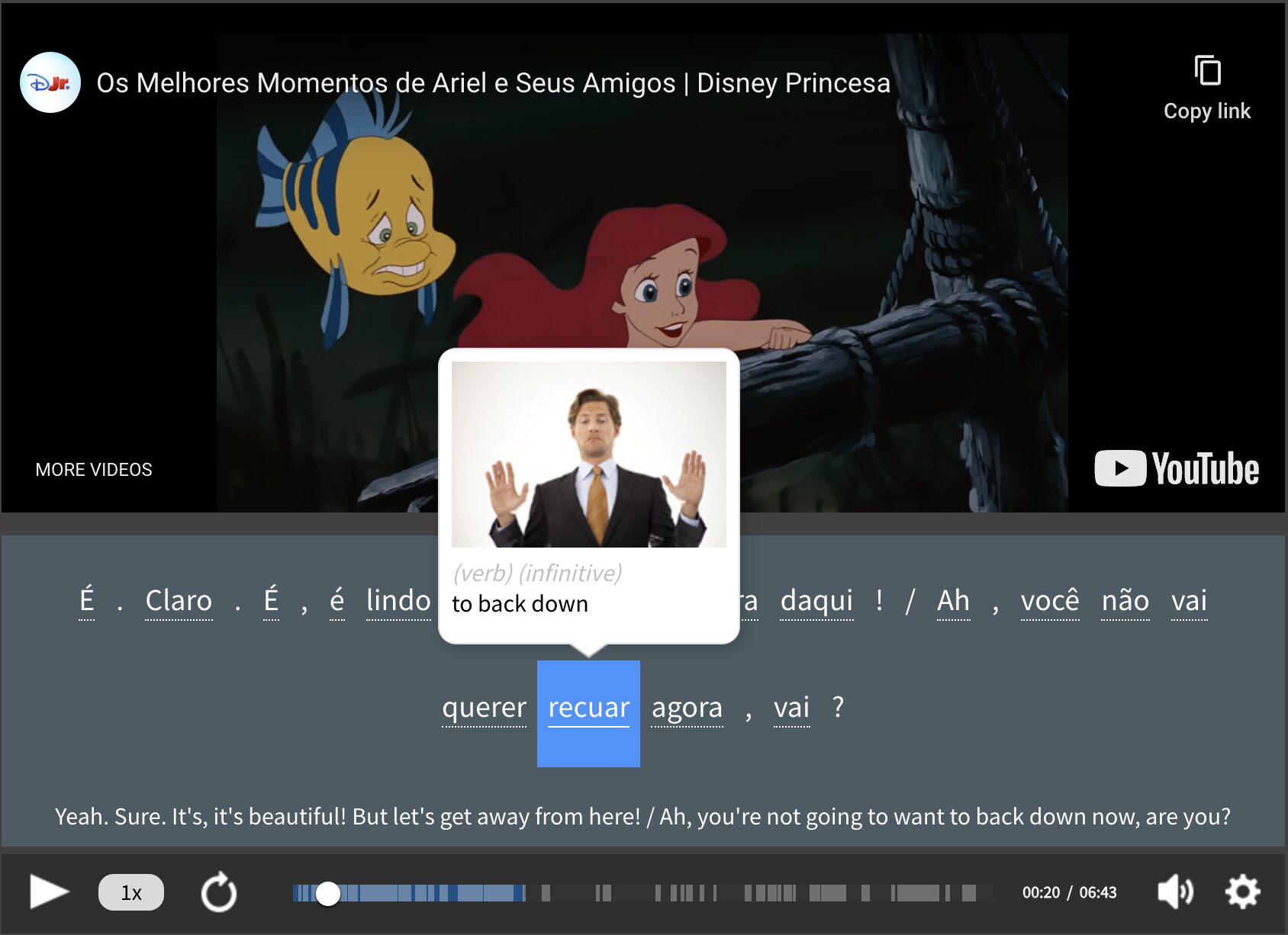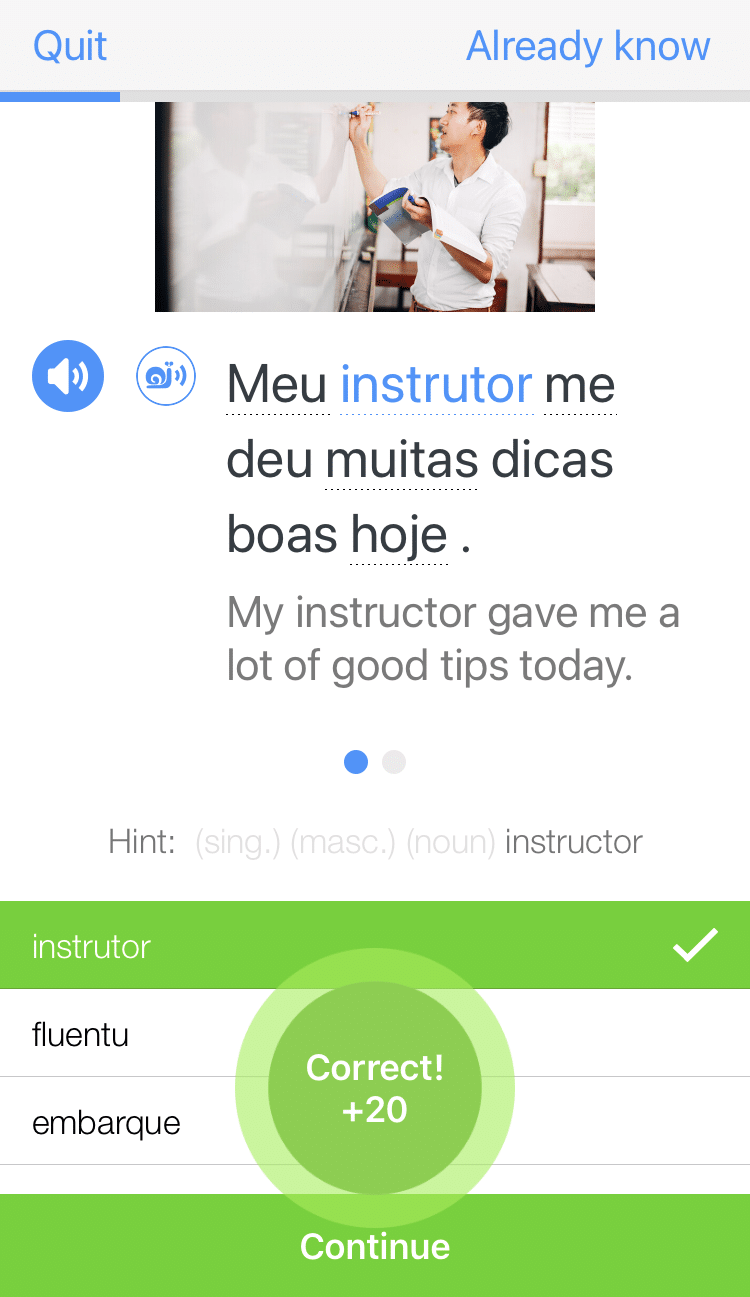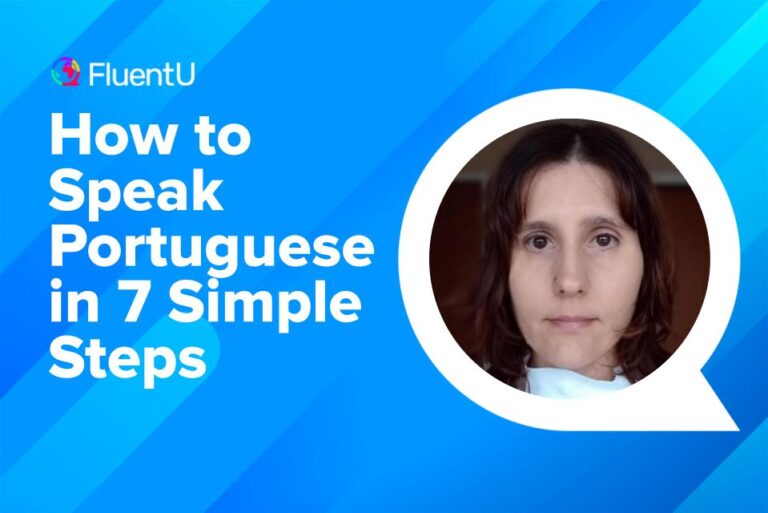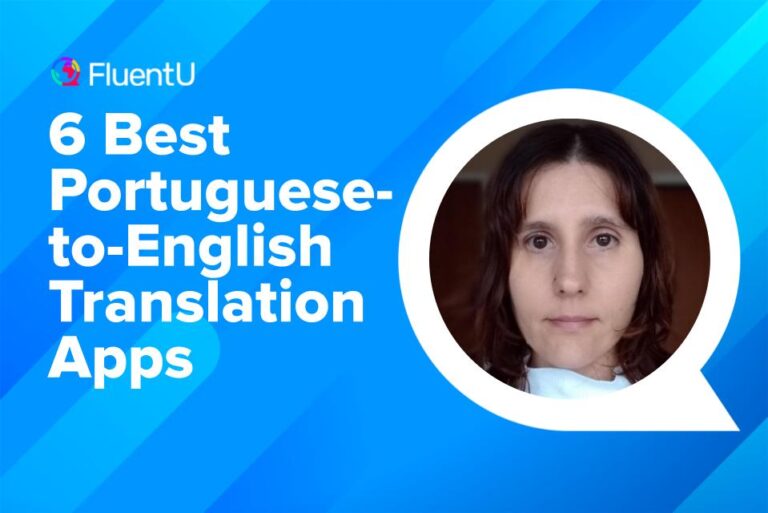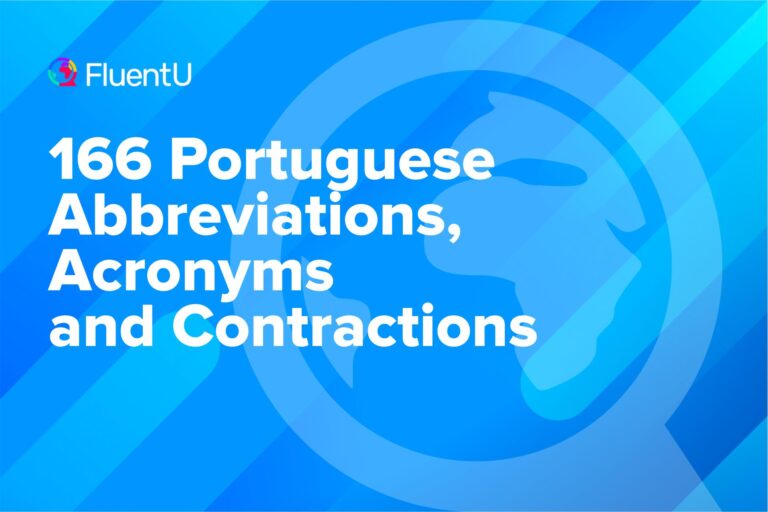37 Common Portuguese Prepositions and Contracted Prepositions
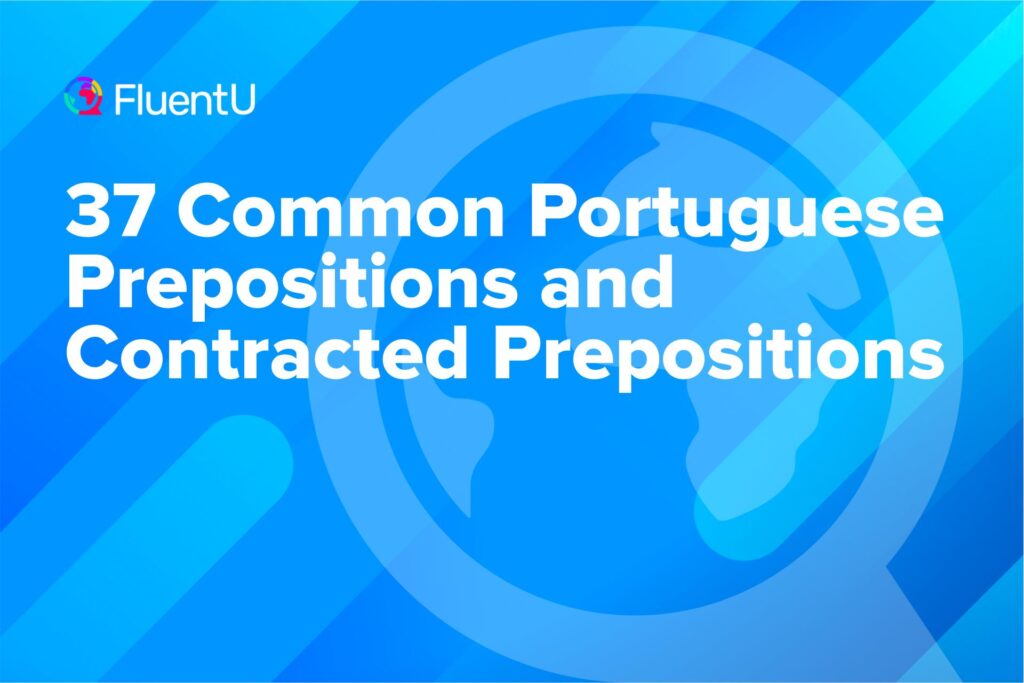
Above, below, before, after and everywhere in between: These are prepositions, words that typically comes before a noun or pronoun to show its relationship to another word in the sentence.
Prepositions indicate location, direction, time, manner or possession, and they’re super useful little words. Get to know Portuguese prepositions to add depth to your conversations.
Download: This blog post is available as a convenient and portable PDF that you can take anywhere. Click here to get a copy. (Download)
How to Use Portuguese Prepositions
In Portuguese, like in English, prepositions are typically placed before the noun or pronoun they relate to. For example:
English: I am going to the store.
Portuguese: Eu estou indo à loja.
English: He’s sitting next to me.
Portuguese: Ele está sentado ao meu lado.
However, there are some cases where the preposition can be placed at the end of the sentence in Portuguese, especially in informal or colloquial speech. This is more common in Brazilian Portuguese than in European Portuguese. For example:
Você vai com quem? (Who are you going with?) instead of Com quem você vai?
Ela está falando de quê? (What is she talking about?) instead of De quê ela está falando?
But in formal writing and standard Portuguese, prepositions are generally placed before the noun or pronoun.
Portuguese Prepositions
Below are the most common Portuguese prepositions, along with an example sentence for each. The examples will give you a general idea of how and when to use each preposition. The FluentU program can provide even more context for these words, and many others.
FluentU takes authentic videos—like music videos, movie trailers, news and inspiring talks—and turns them into personalized language learning lessons.
You can try FluentU for free for 2 weeks. Click here to check out the website or download the iOS app or Android app.
- a
(to, at, toward)
Eu estou indo a pé para o trabalho. (I am walking to work.)
- através de
(through, by)
A informação foi transmitida através de e-mail. (The information was transmitted through email.)
- antes de
(before)
Estudei bastante antes da prova. (I studied a lot before the exam.)
- após
(after)
Vou ligar para você após o jantar. (I will call you after dinner.)
- até
(until, up to)
Ela esperou até as oito horas. (She waited until eight o’clock.)
- como
(like, as)
Ele age como um verdadeiro cavalheiro. (He behaves like a true gentleman.)
- com
(with)
Gosto de café com açúcar. (I like coffee with sugar.)
- contra
(against)
Eles lutaram contra a injustiça. (They fought against injustice.)
- de
(of, from, belonging to)
O livro de Maria está na mesa. (The book belonging to Maria is on the table.)
- desde
(since, from)
Moro aqui desde 2010. (I have been living here since 2010.)
- durante
(during)
Dormi durante toda a viagem. (I slept during the entire trip.)
- em
(in, on)
Estou em casa. (I’m at home.)
- em direção a
(in the direction of)
Eu caminhei em direção a casa. (I walked towards home.)
- entre
(between, among)
A carta está entre os livros. (The letter is between the books.)
- para
(to, towards)
Vou para o trabalho. (I’m going to work.)
- perante
(before, in the presence of)
Ele falou perante o tribunal. (He spoke before the court.)
- por
(by, for, through)
Esta carta foi escrita por ele. (This letter was written by him.)
- salvo
(except, save)
Todos estão aqui, salvo ela. (Everyone is here, except her.)
- sem
(without)
Não consigo viver sem música. (I can’t live without music.)
- sobre
(on, over, about)
Vamos conversar sobre esse assunto. (Let’s talk about this subject.)
- sob
(under, beneath)
O cachorro está sob a mesa. (The dog is under the table.)
Portuguese Contracted Prepositions
In Portuguese, contracted prepositions happen when a preposition combines with certain definite articles or pronouns, resulting in a contracted form. These contractions are common in both European and Brazilian Portuguese and serve to facilitate smoother speech and avoid awkward combinations of words.
Here’s a list of common Portuguese contracted prepositions:
- a (to, at, toward) + o (the) → ao
Vou ao mercado. (I am going to the market.)
- a (to, at, toward) + os (the) → aos
Vou aos correios. (I am going to the post office.)
- a (to, at, toward) + a (the) → à
Vou à escola. (I am going to the school.)
- a (to, at, toward) + as (the) → às
Vou às aulas. (I am going to the classes.)
- de (of, from, belonging to) + o (the) → do
O gato do vizinho é muito brincalhão. (The neighbor’s cat is very playful.)
- de (of, from, belonging to) + os (the) → dos
Os livros dos estudantes estão na prateleira. (The students’ books are on the shelf.)
- de (of, from, belonging to) + a (the) → da
O vestido da menina é azul. (The girl’s dress is blue.)
- de (of, from, belonging to) + as (the) → das
As flores das plantas são bonitas. (The flowers of the plants are beautiful.)
- em (in, on, at) + o (the) → no
Estou no parque. (I am in the park.)
- em (in, on, at) + os (the) → nos
Estou nos jardins. (I am in the gardens.)
- em (in, on, at) + a (the) → na
Estou na biblioteca. (I am in the library.)
- em (in, on, at) + as (the) → nas
Estou nas montanhas. (I am in the mountains.)
- por (for, by, through) + o (the) → pelo
Vou pelo parque. (I am going through the park.)
- por (for, by, through) + os (the) → pelos
Vou pelos campos. (I am going through the fields.)
- por (for, by, through) + a (the) → pela
Vou pela cidade. (I am going through the city.)
- por (for, by, through) + as (the) → pelas
Vou pelas ruas. (I am going through the streets.)
No matter which direction your learning is heading in, Portuguese prepositions will get you there!
And One More Thing...
If you're like me and enjoy learning Portuguese through movies and other media, you should check out FluentU. With FluentU, you can turn any subtitled content on YouTube or Netflix into an engaging language lesson.
I also love that FluentU has a huge library of videos picked specifically for Portuguese learners. No more searching for good content—it's all in one place!
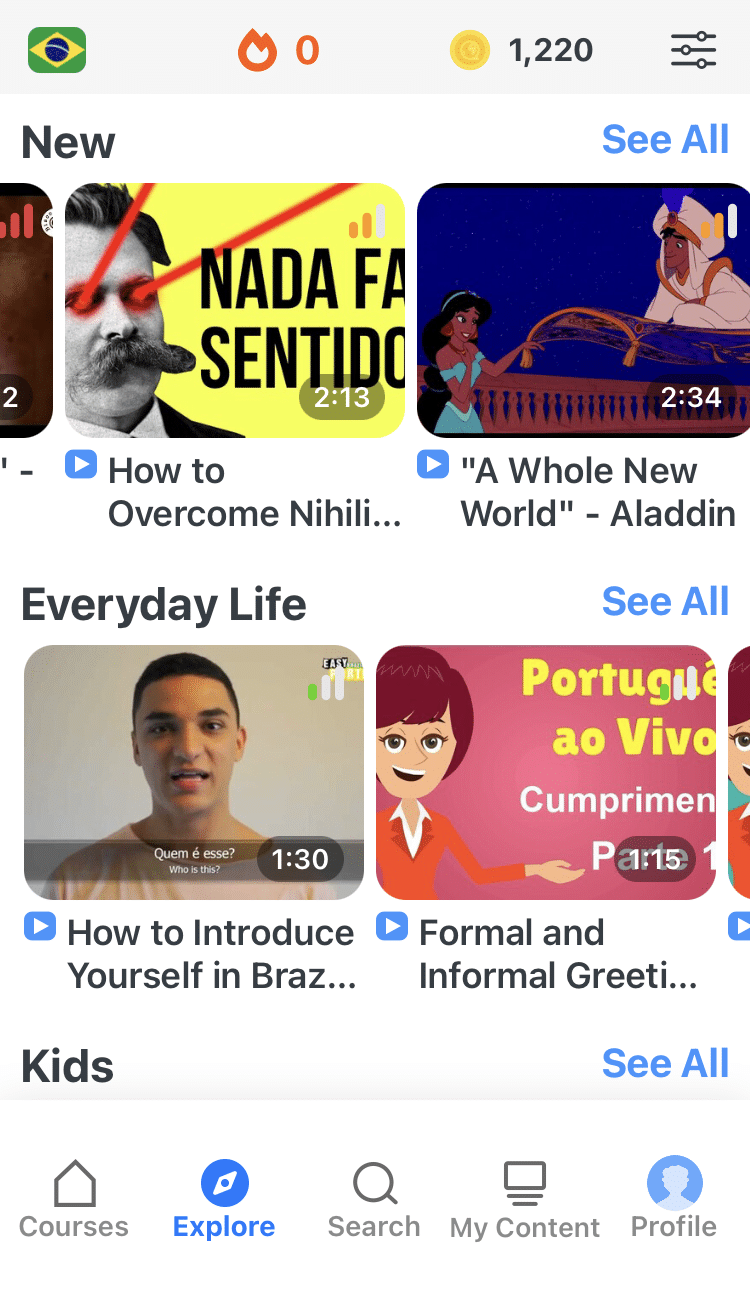
One of my favorite features is the interactive captions. You can tap on any word to see an image, definition, and examples, which makes it so much easier to understand and remember.
And if you're worried about forgetting new words, FluentU has you covered. You'll complete fun exercises to reinforce vocabulary and be reminded when it’s time to review, so you actually retain what you’ve learned.
You can use FluentU on your computer or tablet, or download the app from the App Store or Google Play. Click here to take advantage of our current sale! (Expires at the end of this month.)

